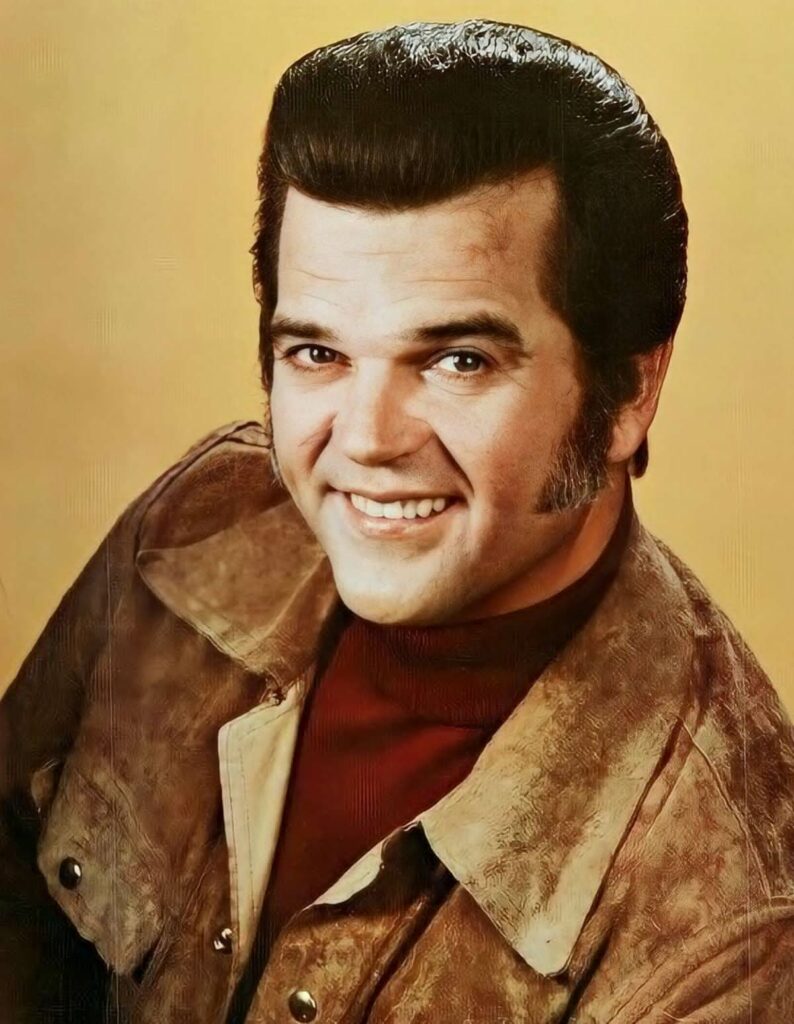
The Heartbreaking Reflection of a Man Who Knows He’s Not Good Enough
There are some songs that don’t just get stuck in your head; they settle right down in your soul, reminding you of a simpler, yet often more painful, time. The quintessential example is “The Image Of Me,” an emotional landmark in the storied career of the great Conway Twitty. Released as a single in February 1968 on the Decca label, this track marked a truly pivotal moment in Twitty’s transformation from a rockabilly-pop star—known for hits like “It’s Only Make Believe”—into the definitive country music icon we remember.
This powerful ballad, penned by songwriter Wayne Kemp, served as Conway Twitty’s first major smash on the country charts. Before this, he had struggled for years to gain acceptance from country radio DJs and the Nashville establishment, who were suspicious of his pop background. But with “The Image Of Me,” all that skepticism melted away under the heat of his raw, soulful delivery. The single was an unequivocal success, soaring to a peak position of No. 5 on the Billboard Hot Country Singles chart in the U.S. and reaching No. 2 in Canada. This top-five breakthrough was the crucial step that paved the way for his first-ever chart-topper, “Next in Line,” later that same year, cementing his new identity and starting a decades-long run of unparalleled country dominance.
The story behind the song is beautifully simple, yet devastatingly universal, speaking to every man who has ever felt undeserving of the love he’s been given. The lyrics paint a picture of a man who is observing his own relationship through the eyes of his beloved. He knows his own flaws—his past mistakes, his weaknesses, his capacity to disappoint—and he’s tormented by the knowledge that the woman he loves doesn’t see the true, tarnished man. Instead, she sees “The Image Of Me,” a perfect, idealized version that exists only in her loving heart.
“She thinks I’m everything a man should be… She thinks the sun rises and sets with me… That’s the image of me she sees.”
The meaning of the song lies in this tragic duality: the conflict between a man’s deeply held self-doubt and the blind, glorious faith of his partner. It’s not a celebration of his goodness, but a confession of his fear—a profound dread that one day, the real him will shatter the perfect idol she worships. For us older listeners, this song strikes a nostalgic chord, reminding us of the days when country music delved into these kinds of complex, mature emotions, sung with a baritone so rich and tremulous it felt like it was carrying the weight of a hundred broken promises. It’s a reflective piece on the burden of being loved, the pressure of living up to someone else’s high opinion, and the constant, quiet anxiety that you’ll eventually let down the one person who believes in you most. Conway Twitty’s delivery, with that signature growl and the tender phrasing, turns the ballad into an intimate, late-night conversation, a moment of profound vulnerability captured forever on vinyl.